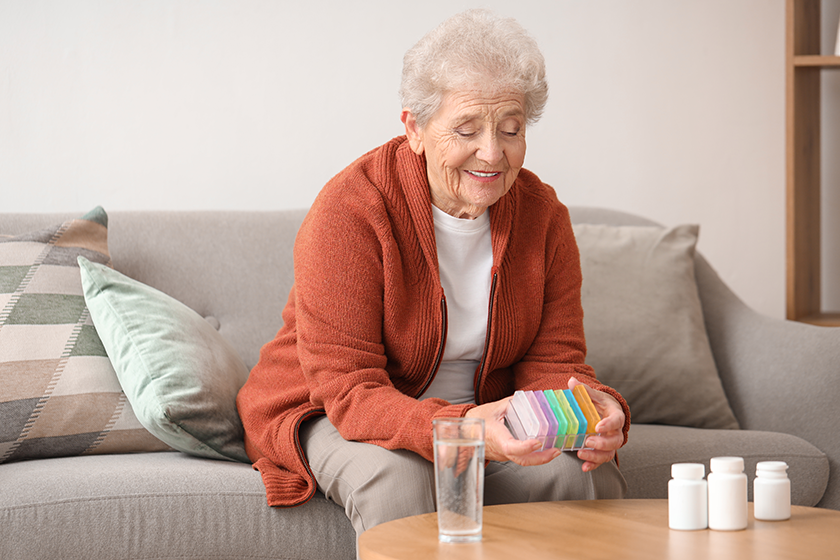Managing medications can become more complex with age. For your aging loved ones, a medication reminder system can help keep their health in check and reduce the risks of missed doses. Many older residents face challenges like memory loss or multiple prescriptions that can make it difficult to remember when to take each medication. This article discusses several ways you can support your loved ones in managing their medications with simple tools and techniques.
The Importance of Medication Reminders
When it comes to your loved ones’ health, medications are often a key part of treatment. Many older adults take multiple prescriptions for chronic conditions like diabetes, hypertension, or arthritis. These medications can be confusing, especially when taken at different times throughout the day. Without a reliable system in place, it is easy for doses to be missed or taken incorrectly, leading to potential health complications.
A medication reminder system can help reduce these risks by offering gentle cues to take medications on time. By making use of simple strategies and available tools, you can ensure your loved ones adhere to their medication schedules.
Using Technology for Medication Reminders
Smartphones, tablets, and voice-activated devices can be powerful tools in helping older residents manage their medications. Many apps are designed specifically for medication tracking. These apps can send reminders when it is time to take a dose and even allow caregivers to track adherence remotely.
In addition to mobile apps, there are voice-activated assistants like Amazon Alexa or Google Assistant that can announce medication reminders throughout the day. These devices are helpful for residents who are not tech-savvy, as they do not require complex setups. Simply program the device to alert your loved one at scheduled times, making it easy for them to follow their medication routine.
Establishing a Routine with Visual Cues
Creating a routine is one of the most effective ways to help residents remember to take their medication. Pairing medication times with daily activities—like eating breakfast or brushing teeth—can reinforce the habit. Establishing a fixed time each day to take medication makes it easier to stick to the schedule.
Visual cues can further assist in remembering when to take medication. Large, easy-to-read calendars or whiteboards in visible locations, like the kitchen or bathroom, can display medication schedules. Alternatively, sticky notes placed in frequently used areas can also serve as helpful reminders.
Medication Organizers and Pill Boxes
Pill organizers are another valuable tool for medication management. These organizers come in various sizes and configurations to hold medications for a full week, along with compartments for different times of the day. This system helps prevent accidental missed doses and makes it easier to track whether medications have been taken.
Some pill organizers even have built-in alarms that beep or vibrate when it is time to take a dose. This added feature can be particularly useful for residents with hearing impairments or those who have difficulty remembering to check their organizer.
Creating a Medication Checklist
A simple checklist can help your loved ones keep track of their medication schedule. This is especially helpful if they are taking multiple medications at different times. Writing down each medication, along with the time it needs to be taken, can offer visual reinforcement and prevent confusion. The checklist can be placed on the fridge or near their medication organizer for easy reference.
Encourage your loved ones to mark off each medication as it is taken, reducing the risk of forgetting a dose or accidentally taking too much. If necessary, a caregiver or family member can also check in to make sure everything is being taken as scheduled.
Remote Monitoring for Family Caregivers
For those who may not be able to assist in person every day, there are remote monitoring tools available. Devices like smart dispensers can notify caregivers if a dose has been missed. These dispensers can be programmed to release the correct dosage at the proper time, further reducing the chance of error.
The Role of Health Professionals in Medication Management
Healthcare providers can also play an important role in medication management. It is helpful to involve your loved one’s doctor in creating a medication routine. They can clarify any concerns, simplify complicated regimens, and ensure that medications are not being duplicated or interacting with each other.
It is also important to periodically review all medications with the doctor. As health needs change, medications may need to be adjusted. Regular check-ups can help avoid potential issues related to polypharmacy, which is the use of multiple medications by a single individual.
Supporting Medication Adherence with Compassionate Care
Incorporating effective medication reminders into your loved one’s routine can promote better health outcomes. At our assisted living community, we offer the necessary tools, support, and resources to make medication management simpler and more reliable for both residents and their loved ones.






